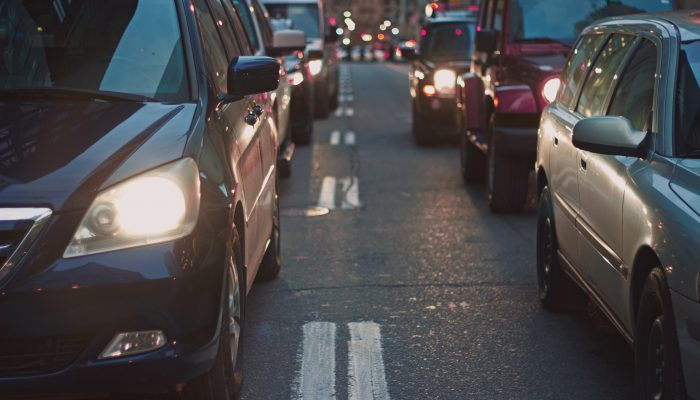
Increasing costs for road users is politically difficult. This is one of the reasons why we have had seven years and eight consecutive budgets where fuel duty has been frozen at a time of historically low oil prices and austerity.
The result of seven years of fuel duty freezes is that the price of fuel at the pump is 13% lower than it would otherwise have been. While the freeze has been welcomed by many road users and has undoubtedly been of benefit to people struggling on low incomes dependent on car travel, there have been some unintended consequences.
As a direct result of the freeze in fuel duty since 2011:
- Traffic has grown by 4%, worsening both congestion and pollution
- The increase in traffic has produced an additional 4.5 million tonnes of CO2, including 2.8 million from cars and taxis and 1.7 million from lorries and vans[1]
- The increase in traffic has produced 12 thousand tonnes of NOx, and 816 tonnes of PM10s[2]
- The freeze on fuel duty since 2011 has cost the Treasury around £7 billion in lost tax revenue[3]. In addition, there had been less rail revenue and more rail subsidy
- Public transport usage has decreased by between 1.3% and 3.9% causing there to be up to 60 million fewer rail journeys and up to 200 million fewer bus journeys[4]
The impact of congestion means that the above figures underestimate the increase in CO2, NOx and PM10s. Emissions from road traffic increase by approximately 40% as the result of congestion[5]. It is also likely that the decline in bus use is even greater because of the increase in congestion caused by the growth in traffic. Buses suffer more from congestion than any other mode of transport. Congestion has been causing bus speeds to fall by on average 10% every decade, causing bus patronage to all by 10-14%[6].
The Government has stated that from the financial year 2019/20 fuel duty will be uprated each year in line with the growth in the RPI. They are right to make this commitment. It is vitally important that Government delivers on this commitment as a minimum if it is to begin to send the right price signals to road users.
Currently price signals are leading to worsening pollution and congestion. This year, for the first time since 2000, the CO2 emissions from the average car sold in the UK has increased. The cheaper fuel price combined with the improved efficiency of vehicles has encouraged consumers to purchase larger vehicles with an increase in demand for SUVs[7].
Government needs to begin to redress the balance if it is to tackle some of the most serious externalities arising from motoring including pollution and congestion. Economic analysis conclusively demonstrates that many road users do not cover their external costs, especially in congested urban areas. The challenge is that the public feel they are paying too much for their road use. Since the fuel duty protests in 2000, followed by the referendums on congestion charging in Edinburgh and Manchester, levying additional charges on road users has become politically difficult.
In the medium to longer term, the impact electric vehicles will have on Government finances and traffic volumes will be serious. The Government plans to phase out sale of petrol and diesel cars by 2040 (2030 in Scotland). Whilst the new electric vehicles will be cleaner and safer, they will not solve the congestion problem and they will leave a hole in the Treasury finances When the £29 billion paid in fuel duty disappears. If driving is cheaper congestion will worsen. Unless a new way to pay for road use is introduced to replace fuel duty:
- Traffic on our roads will increase by an additional 30%. This is in addition to the 40% growth in traffic already predicted by DfT by 2035[8], leading to an overall increase in traffic of approximately 70% by 2035.
Politically it will be very challenging for Government to impose a compulsory change in how we pay for road use. However, the advent of autonomous vehicles presents the opportunity to introduce a voluntary change in how we pay for road use. The desire to operate vehicles in autonomous mode will be strong enough for many to accept the condition that they pay differently for road use. This is a one-off opportunity to get the public to adopt change.
[1] Calculations based on data from Office for National Statistics, Environmental Accounts: November 2017
[2] Calculations based on data from Office for National Statistics, Environmental Accounts: November 2017
[3] Calculation based on data from OBR, 2017
[4] Rail Statistics Gov. UK (2016) and Bus statistics Gov.UK (2018)
[5] Bath and Boriboonsomin, 2008
[6] Prof David Begg, report for Greener Journeys 2016, The Impact of Congestion on Bus Passengers
[7] SMMT 2018
[8] DfT Road Traffic Forecast 2017
About the Author
This post was written by Claire Haigh Professor David Beg.
